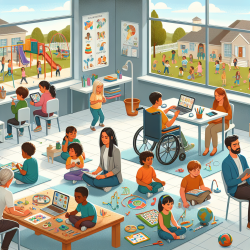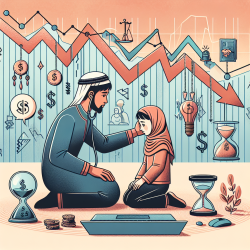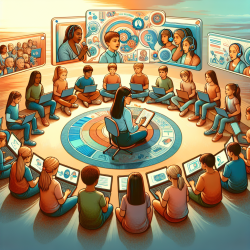Introduction
In the ever-evolving landscape of cultural dynamics, understanding how societal shifts impact individual behavior and psychology is crucial for practitioners in fields like speech-language pathology. A recent study titled Temporal Changes in Individualism and Their Ramification in Japan: Rising Individualism and Conflicts with Persisting Collectivism sheds light on the complex interplay between rising individualism and traditional collectivism in Japan. This blog explores how these findings can inform and enhance therapeutic practices for children, particularly in online therapy settings like those provided by TinyEYE.
Understanding the Shift
The research by Ogihara (2017) indicates that Japan has experienced significant cultural shifts towards individualism, influenced by factors such as economic development, urbanization, and changes in social systems. These shifts are evident in increased divorce rates, smaller household sizes, and a growing preference for unique names. Despite these changes, some collectivist values persist, creating a unique cultural environment where individualism and collectivism coexist.
Implications for Practitioners
For practitioners working with children, understanding these cultural dynamics is vital. Here are some ways to incorporate these insights into practice:
- Recognize Individual Differences: Acknowledge the growing trend towards individualism by tailoring therapy sessions to accommodate individual preferences and unique learning styles.
- Balance Independence and Collectivism: While fostering independence is important, practitioners should also emphasize the value of community and cooperation, reflecting the dual nature of Japanese culture.
- Incorporate Cultural Context: Use culturally relevant materials and examples in therapy sessions to resonate with children's experiences and backgrounds.
- Promote Social Skills: Given the potential impact of individualism on interpersonal relationships, focus on developing children's social skills to enhance their well-being and adaptability.
Encouraging Further Research
The coexistence of individualism and collectivism in Japan presents a unique opportunity for further research. Practitioners are encouraged to explore how these cultural dynamics specifically affect children's communication and social development. Investigating these aspects can lead to more effective therapeutic strategies and improved outcomes for children.
Conclusion
As Japan continues to navigate the complexities of cultural change, practitioners must remain adaptable and informed. By integrating insights from the study of cultural dynamics, therapists can better support children in achieving their full potential. For those interested in delving deeper into this topic, the original research paper offers a comprehensive analysis of these cultural shifts.
To read the original research paper, please follow this link: Temporal Changes in Individualism and Their Ramification in Japan: Rising Individualism and Conflicts with Persisting Collectivism.










